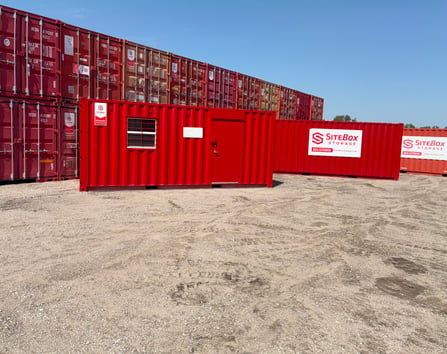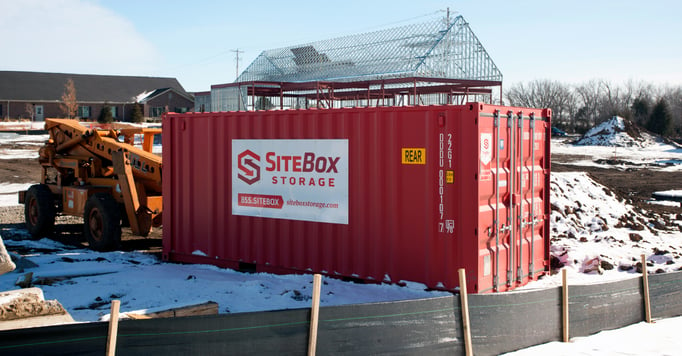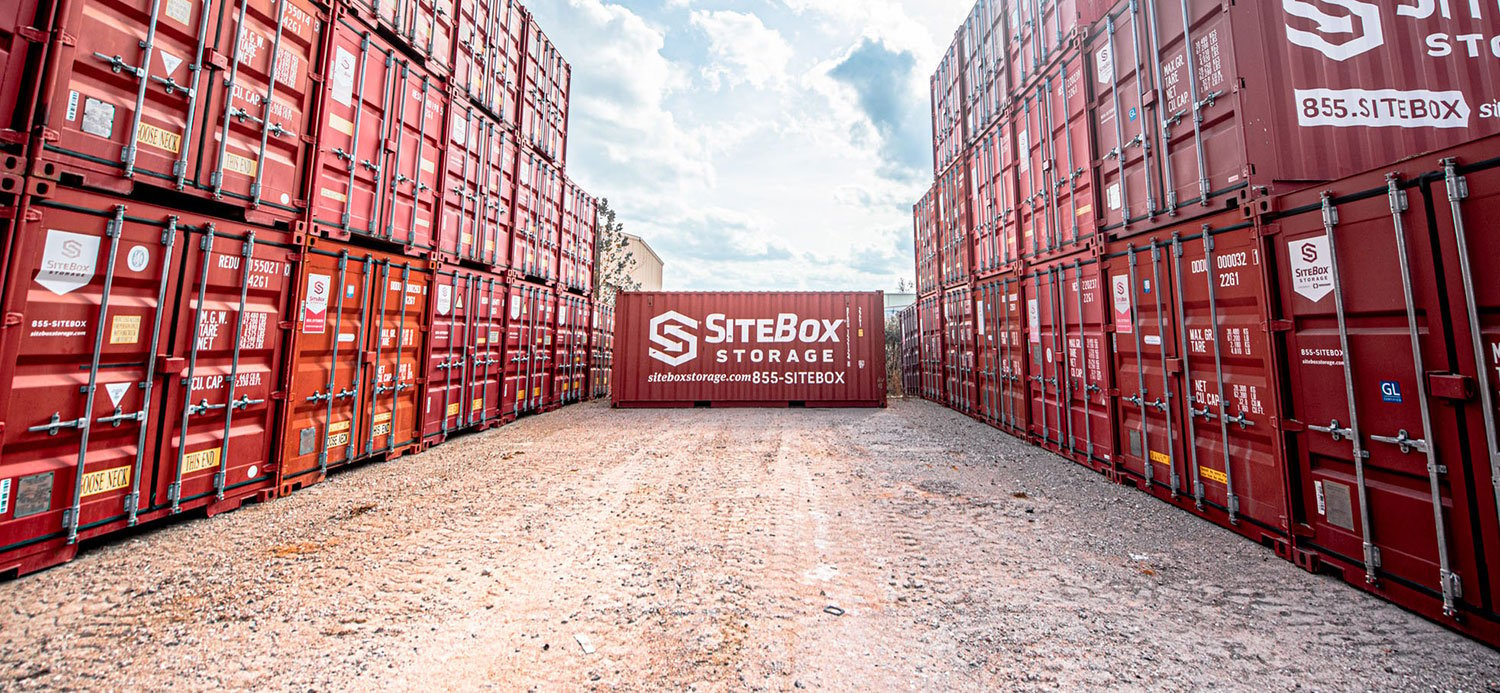common uses for onsite container storage units
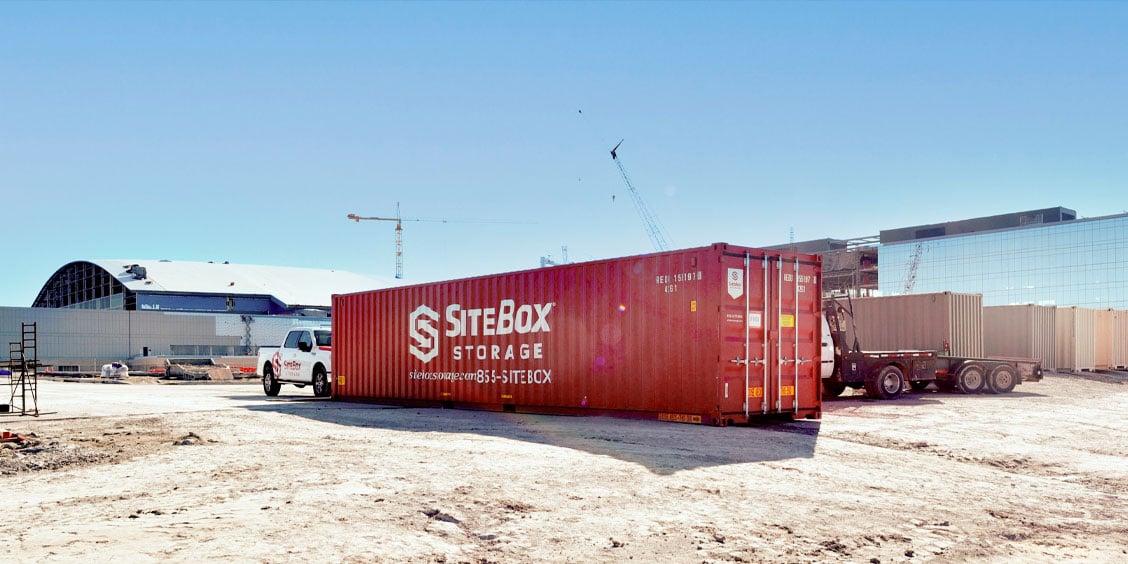
Shipping containers used to cross oceans. Now? They're sitting in parking lots, construction sites, and business properties solving storage headaches everywhere. You might think container storage only makes sense for construction, but that barely scratches the surface of what these steel boxes can do.
Let's walk through the most common ways businesses and property owners put onsite container storage to work. Some uses you already know about. Others might surprise you—and give you ideas for your own storage needs.
Construction Site Storage and Jobsite Solutions
Construction sites burn through the most onsite container storage units. Tools disappear. Materials vanish overnight. With lumber and copper costing what they do, you can't afford having stuff walk off the jobsite.
Container storage units provide lockable, weather-resistant protection right where work happens. Over 72% of businesses using onsite storage report a 15.8% increase in operational efficiency—mostly because workers waste less time hunting for equipment.

Many construction companies lease several units simultaneously. Smart GCs rent separate containers for each trade—electricians get one, plumbers another, HVAC their own. This separation makes inventory tracking way easier.
The 8' x 20' size works well for electrical trades. Install racks holding conduits, add shelving for fittings, organize condulets by size. Onsite container storage reduces inventory handling time by an average of 21.4%.
Since containers sit on the ground, a small ramp lets you roll heavy items in and out. Bulk wire spools, barrel containers, cart-mounted racks—everything moves smoothly without forklifts. Ground-level access beats trailer storage for frequent retrieval.
You can ship fixtures, flooring, furniture to the jobsite long before installation. Weather-resistant and rodent-proof containers keep everything pristine. If something arrives damaged, you've got time to replace it.
Mobile Office Solutions and Workspace Applications
These steel boxes aren't just for storage. Modified shipping containers serve as mobile offices across job sites.
General contractors, electrical companies, plumbing outfits—they all use converted containers as temporary workspace. Some come preconfigured with windows, electrical outlets, overhead lighting, heating and AC. Personnel doors on the side replace standard cargo doors.
Basic countertops and shelving often come included. Room dividers create separate spaces—two offices, or office with storage. The office section gets finished walls while storage stays raw container interior. Great for pipe racks, shelving, even employee bicycle hooks.
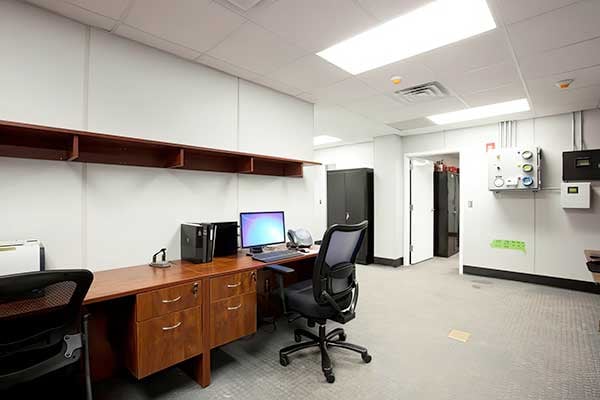
Preconfigured units have limited modification possible and can get tight on availability. Contact providers early. These typically come in 20-foot and 40-foot lengths.
Schools and universities use container offices for administrative spaces, registration centers, temporary classrooms during renovations.
Retail and Commercial Storage Applications
Retail businesses face constant space challenges. Seasonal spikes, bulk purchases, special promotions—suddenly your backroom overflows.
Onsite container storage parked near your store gives you secure overflow space. Your showroom stays clutter-free. Employees access inventory quickly without navigating crowded aisles or dangerous stacks.
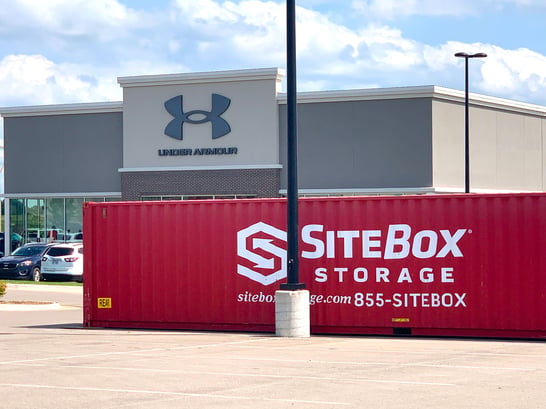
This becomes crucial during warehouse renovations. You can't have employees retrieving products from construction zones. Container storage keeps your team safe while maintaining operations.
Ground-level access with a small ramp lets employees grab bulky items easily. No fancy equipment needed.
Since containers are pest and rodent resistant, dry goods stay protected. Nearly 65% of companies using container storage cite improved security as a key benefit.
Business Relocation and Moving Storage
Moving your business creates logistical headaches. Traditional storage facilities mean moving stuff twice—once into storage, once to the new location.
Onsite container storage solves this. Park the unit at your new location. Load it with supplies, furniture, equipment. Everything stays secure until you're ready to unload. You only move things once.
These units often sit in parking lots near the new building. Retrieve items at your convenience instead of rushing to meet storage facility deadlines.
Start planning eight weeks before moving. Figure out what goes into storage first, what you need until the last minute, how you'll organize for easy retrieval.
The average lifespan of a standard container is 23.6 years under regular use, so even months-long moves work fine.
Educational Institution Storage Needs
Schools and universities discovered that cargo containers work brilliantly as semi-permanent campus storage.
Sports equipment, extra furniture, desks, office supplies—all that stuff schools accumulate sits securely in onsite container storage. Even groundskeeping equipment including lawnmowers and tractors store safely.
Many schools lease containers ongoing, charging fees to operating budgets. The flexibility makes sense—keep it year-round or return it when done.
Approximately 48,200 onsite container units were deployed worldwide in 2024, with educational institutions representing growing percentages. The durability, security, and variety of sizes let schools match storage solutions to specific needs without permanent construction.
Containers also work during campus construction or renovations. Temporarily relocate department supplies, records, equipment. Everything stays accessible but out of the way.
Types of Onsite Container Storage Units
Understanding container options helps match the right unit to your needs.
Standard dry cargo containers make up the majority. Steel construction, lockable doors, weather-resistant seals. Sizes commonly range from 10 to 40 feet in length, all 8 feet wide.
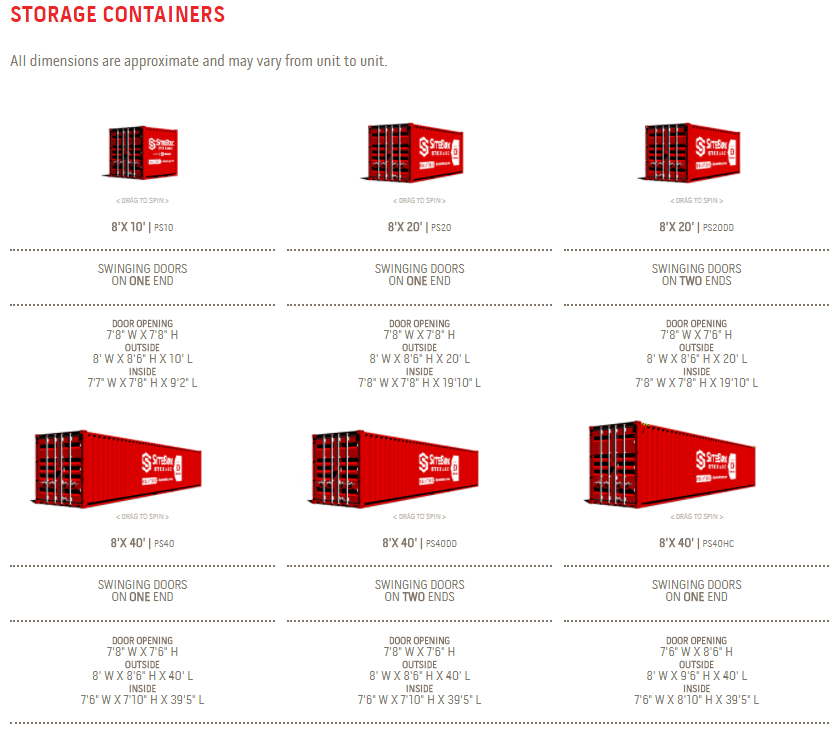
High cube containers add extra interior height—about 9.5 feet versus standard 8 feet. Perfect for tall items or maximizing vertical shelving space.
Modified containers come preconfigured for specific uses. Office conversions with electrical, HVAC, windows. Workshop setups with shelving and workbenches. Combination units splitting space between office and storage.
Refrigerated containers maintain temperature control for products requiring climate control—less common but useful for specific industries.
The variety of container storage solutions means you can find something matching almost any requirement.
Security Features and Weatherproofing
Security drives many onsite container storage decisions. These units survived ocean crossings—they handle terrestrial challenges easily.
Heavy-gauge steel construction resists break-ins better than most alternatives. Lockable doors accept heavy-duty padlocks or lockboxes preventing bolt cutter attacks. Limited entry points make unauthorized access difficult.

Weather resistance comes standard. Containers handle rain, snow, wind, temperature extremes. Proper seals keep moisture out. Elevated floors prevent ground water intrusion.
Pest and rodent resistance matters more than people realize. Containers seal tightly enough that rodent access stays minimal. Your documents, fabrics, materials stay protected.
Some customers add extra security. Motion sensor lights, security cameras, alarm systems. For high-value inventory, these additions provide extra peace of mind.
Delivery, Placement, and Logistics
Getting your container where you need it requires planning but isn't complicated.
Most rental and sale providers offer delivery service. They'll drop the container using specialized trucks. You need adequate space—the container length plus truck maneuvering room.
Ground preparation matters. Containers need level, stable surfaces. Gravel, concrete, even firm grass works. Avoid soft soil or settling areas.

Check overhead obstructions before delivery. Power lines, tree branches, building overhangs—anything blocking crane or truck access prevents placement.
Site access determines feasibility. Narrow driveways, tight corners, gated entries—all potential obstacles. Discuss site conditions during the quote process.
Once placed, containers stay put until you schedule pickup. Some providers allow relocation for additional fees.
Cost Factors and Rental Options
Pricing varies based on several factors.
Size affects cost obviously. Ten-foot units cost less than 40-footers. Rental duration matters—monthly rates differ from daily or weekly. Condition influences pricing. New containers command premiums. Used containers cost less with plenty of life remaining.
Modification level changes pricing significantly. Standard containers cost least. Preconfigured office units with HVAC and electrical cost more. Custom modifications run highest.
Delivery distance and site accessibility affect total quotes. Simple accessible deliveries cost less than remote or difficult sites.
You can rent or buy depending on needs. Short-term projects make rental sensible. Long-term needs might favor purchasing. Some providers offer rent-to-own arrangements.
Get quotes from multiple providers. Compare base pricing, delivery fees, pickup fees, damage policies, minimum periods. Ask about customer service and assistance.
Read reviews if available. Quality providers deliver on time, handle issues promptly, maintain units properly.
Frequently Asked Questions
What is onsite container storage?
Onsite container storage uses portable shipping containers placed directly on your property for secure storage. These steel units sit at your location—job site, business property, driveway—providing weather-resistant, lockable space for equipment, inventory, supplies, or belongings. They're portable storage solutions you control without driving to storage facilities.
What types of container storage units are available?
Several types exist. Standard dry cargo containers handle general storage needs in 10 to 40-foot sizes. High cube containers offer extra ceiling height. Modified containers come preconfigured as offices, workshops, or combination spaces with built-in features. Refrigerated containers maintain temperature control for special needs. The variety lets you match container type to your specific requirements.
How secure are onsite container storage units?
Very secure. Heavy-gauge steel construction resists break-ins. Lockable doors accept heavy-duty padlocks or lockboxes. Limited entry points make unauthorized access difficult. They're also weather-resistant and pest-proof, protecting contents from environmental damage. Nearly 65% of companies using container storage cite improved security as a key benefit.
Can I rent or buy onsite container storage?
Yes, both options exist. Rental works well for short-term needs—construction projects, temporary business storage, moving transitions. Purchase makes sense for long-term or permanent storage requirements. Some providers offer rent-to-own arrangements. Pricing varies based on size, condition, modifications, and rental duration. Contact providers for quotes specific to your situation.
What sizes do container storage units come in?
Sizes commonly range from 10 to 40 feet in length, all 8 feet wide. Standard height runs about 8 feet inside. High cube versions offer 9.5 feet interior height. Ten-foot containers work for limited space or smaller storage needs. Twenty-foot units balance capacity and footprint. Forty-foot containers provide maximum storage volume. Choose size based on what you're storing and available placement space.
How much does onsite container storage cost?
Costs vary widely based on size, condition, rental duration, and location. Monthly rentals might run a few hundred dollars for basic units to over a thousand for modified containers with features. Purchase prices start around a few thousand for used containers, up to $20,000+ for new, highly customized units. Delivery and pickup fees add to total cost. Get quotes from multiple providers comparing all fees.
Are there delivery options for container storage units?
Yes, most providers offer delivery service. They use specialized trucks placing containers at your specified location. You need adequate space, level ground, and clear access for the delivery vehicle. Discuss site conditions during the quote process. Delivery fees vary based on distance and site accessibility. Some providers include delivery in base pricing. Others charge separately.
Can I use containers for both personal and business storage?
Absolutely. Containers work for personal storage—moving, renovations, seasonal items, vehicle storage. They also serve business needs—inventory, equipment, supplies, documents. The same features benefiting businesses help homeowners. Security, weather resistance, and onsite convenience work regardless of whether you're storing personal belongings or business assets.
How weather-resistant are container storage units?
Extremely weather-resistant. Containers survive ocean crossings, so rain, snow, wind, and temperature extremes aren't problems. Proper seals keep moisture out. Elevated floors prevent ground water intrusion. Steel construction handles severe weather. The average lifespan of a standard container is 23.6 years under regular use, proving their durability across all weather conditions.
How do I maintain an onsite container storage unit?
Maintenance stays minimal. Inspect regularly for rust spots, treating promptly with rust converter and paint. Check door seals, replacing if they crack or leak. Keep the interior clean and dry—sweep periodically, wipe down surfaces. Ensure proper drainage around the container preventing water pooling. For modified units with HVAC or electrical, follow standard equipment maintenance guidelines. Well-maintained containers last decades with basic care.
Onsite container storage units solve problems across countless situations. Construction sites, retail businesses, schools, office relocations—these steel boxes provide secure, weather-resistant, portable storage solutions wherever you need them. The flexibility, security, and variety of options available make containers practical for almost any storage challenge. Whether you're dealing with short-term project needs or long-term storage requirements, container storage delivers reliable solutions that adapt to your changing circumstances.
Should you have questions about renting or buying an onsite storage unit, or preconfigured mobile office, contact SiteBox Storage!
